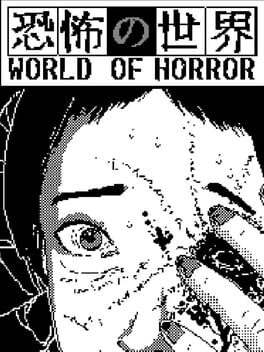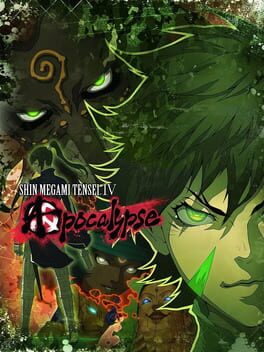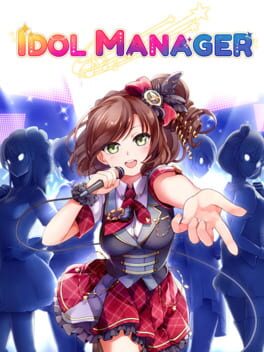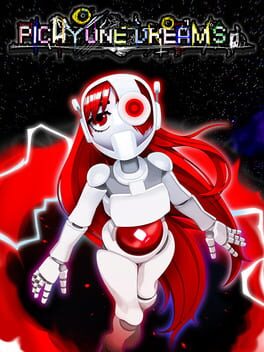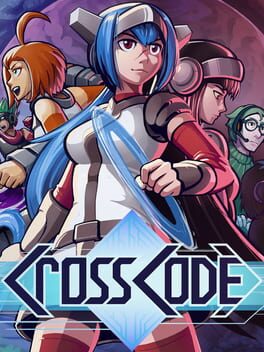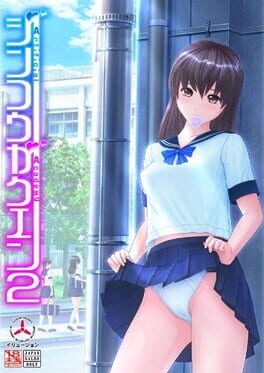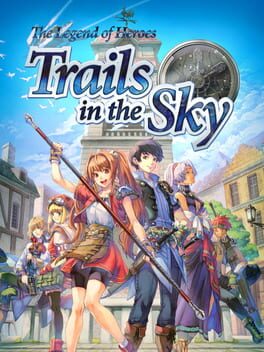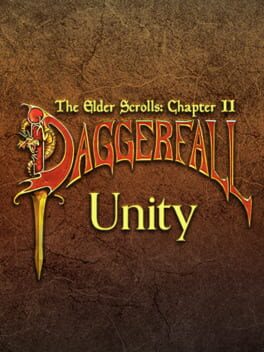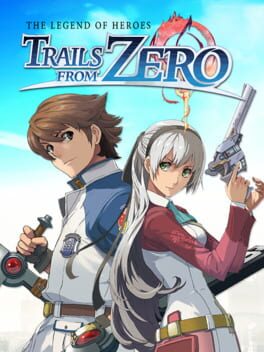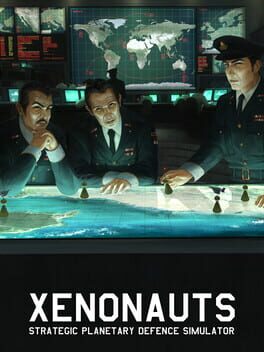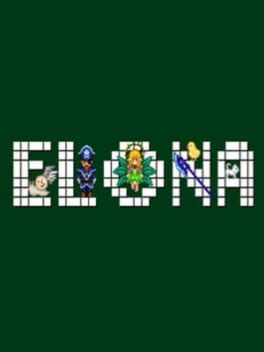Trapezohedron
2020
Junji Ito-esque, but the game's campaigns is far disconnected from your endgame. You're basically playing a board game, and someone gives you a key for some reason that's not tied to any of the randomly generated plots.
It's also relatively hard. If nothing else, it can evoke atmosphere.
TL;DR: FTL Horror Edition
It's also relatively hard. If nothing else, it can evoke atmosphere.
TL;DR: FTL Horror Edition
SMT IV: Apocalypse improves on the game set by SMT IV in almost every way, excluding the story.
I have at least replayed this game over 5 times and grinded Matador to 999 stat, which while not hard, is utterly stressful given the amount of grinding you need to do to get around that stat level.
Playing as a poor kid who found a used, broken smartphone from a dead corpse, you soon become thrust into Tokyo's religiously-political factions and... wait I'm getting ahead of myself here.
You die first, and a god, pitying your poor excuse of an existence, offers you a second chance with one condition: You now serve under him.
Then you are thrust into the factions of the world, but are unable to join them ideologically thanks to your contract with the god who resurrected you. Instead, there are two routes in the game.
I should state that at a pivotal point in the game, if you're too inconsistent with your standing, as in you suddenly go for the other route when you qualify for the first route, you will lose all of your items as a punishment. It's a nice touch by the developers to ensure you're as consistent as can be.
Before I end up spoiling the rest of the game, here are the game's improvements, which were eventually carried on to Persona 5:
Smirking has been revamped. No longer do enemies become Speedy Gonzales once they smirk with you having little to no chance of hitting them, but instead Smirking provides guaranteed criticals and incentivizes their use by allowing skills to add additional effects if used while smirked. This can be a good thing for you or very bad if your enemy is smirking.
Two skills have been added to make this very core to the experience: Smile Charge, which grants you Smirk status at will, and Magaon, which removes Smirking status.
In a series where buffs are very important, this adds layers of complexity to the combat.
Estoma Sword is no longer Estoma Sword, but rather Estoma itself directly. It can be tapped in on the menu without going to your skills, and you don't need to hit enemies with it anymore. Pop in, and boom, repel encounters.
Dungeons, which were incredibly small in SMT IV, have been noticeably expanded in IVA. Of course, the small dungeons from the previous game still kind of exist, but new dungeons also fill that gap which are multi-layered.
Allies are also no longer suicidally stupid. Instead, they're just stupid in terms of not being able to properly coordinate with you. Allies will no longer use attacks that enemies block or repel, and it might seem like a cheat, but you will appreciate it given you no longer have a Walter equivalent casting Agi on Minotaur.
The Final Boss is awesome in that you're tested in as much as you know the game's inner workings, and a DLC superboss is the same take, but stronger.
----
There are parts where the game is weak however.
The game is focused on bonds and friendship. This weakens the general theme of the SMT series, but it's not so bad that you'll want to ignore the game and throw it on a Mexican trashheap never to be found alongside the many cartridges of ET buried with it.
The final dungeon is labyrinthine with its multiple stratums and teleporters, and by god the walking is painful. Even worse, you can't negotiate with the denizens inside that dungeon due to plot reasons.
Some AI allies are better than others, the worst of which is a certain spearman who will regularly steal press turns to attack enemies who may resist Physical attacks.
And the DLCs? Yeah, they exist, and most of them exist to make your character obscenely OP from the get-go.
It's not a perfect game, then again nothing is, but it's as close to one and I wish they would remake this game for the PC too.
I have at least replayed this game over 5 times and grinded Matador to 999 stat, which while not hard, is utterly stressful given the amount of grinding you need to do to get around that stat level.
Playing as a poor kid who found a used, broken smartphone from a dead corpse, you soon become thrust into Tokyo's religiously-political factions and... wait I'm getting ahead of myself here.
You die first, and a god, pitying your poor excuse of an existence, offers you a second chance with one condition: You now serve under him.
Then you are thrust into the factions of the world, but are unable to join them ideologically thanks to your contract with the god who resurrected you. Instead, there are two routes in the game.
I should state that at a pivotal point in the game, if you're too inconsistent with your standing, as in you suddenly go for the other route when you qualify for the first route, you will lose all of your items as a punishment. It's a nice touch by the developers to ensure you're as consistent as can be.
Before I end up spoiling the rest of the game, here are the game's improvements, which were eventually carried on to Persona 5:
Smirking has been revamped. No longer do enemies become Speedy Gonzales once they smirk with you having little to no chance of hitting them, but instead Smirking provides guaranteed criticals and incentivizes their use by allowing skills to add additional effects if used while smirked. This can be a good thing for you or very bad if your enemy is smirking.
Two skills have been added to make this very core to the experience: Smile Charge, which grants you Smirk status at will, and Magaon, which removes Smirking status.
In a series where buffs are very important, this adds layers of complexity to the combat.
Estoma Sword is no longer Estoma Sword, but rather Estoma itself directly. It can be tapped in on the menu without going to your skills, and you don't need to hit enemies with it anymore. Pop in, and boom, repel encounters.
Dungeons, which were incredibly small in SMT IV, have been noticeably expanded in IVA. Of course, the small dungeons from the previous game still kind of exist, but new dungeons also fill that gap which are multi-layered.
Allies are also no longer suicidally stupid. Instead, they're just stupid in terms of not being able to properly coordinate with you. Allies will no longer use attacks that enemies block or repel, and it might seem like a cheat, but you will appreciate it given you no longer have a Walter equivalent casting Agi on Minotaur.
The Final Boss is awesome in that you're tested in as much as you know the game's inner workings, and a DLC superboss is the same take, but stronger.
----
There are parts where the game is weak however.
The game is focused on bonds and friendship. This weakens the general theme of the SMT series, but it's not so bad that you'll want to ignore the game and throw it on a Mexican trashheap never to be found alongside the many cartridges of ET buried with it.
The final dungeon is labyrinthine with its multiple stratums and teleporters, and by god the walking is painful. Even worse, you can't negotiate with the denizens inside that dungeon due to plot reasons.
Some AI allies are better than others, the worst of which is a certain spearman who will regularly steal press turns to attack enemies who may resist Physical attacks.
And the DLCs? Yeah, they exist, and most of them exist to make your character obscenely OP from the get-go.
It's not a perfect game, then again nothing is, but it's as close to one and I wish they would remake this game for the PC too.
Almost perfect; the game otherwise lacks a compelling multiplayer mode and weapon balance feels a bit wacky. Game relies on you staggering to open opportunities of significant damage against enemies, and the slower pace of combat compared to 4A plus the short lock-on range encourages getting head on against enemies.
Despite everything it's the most accessible Armored Core VI with something to give for its players, both on the easy side and the hard side.
And for the love of all that is holy, please play the game at least 3 times; the game needs its NG+ to fully develop.
Despite everything it's the most accessible Armored Core VI with something to give for its players, both on the easy side and the hard side.
And for the love of all that is holy, please play the game at least 3 times; the game needs its NG+ to fully develop.
2021
2023
Criminally-cheap, this breakcore album disguised as a game (don't take that as an insult; the game has a LOT going for it despite being short) somehow managed to worm itself into my brain despite being so cheap and despite being grabbed by me on a whim.
I consider this complete after having farmed 50 rockets with 50 digiwatches and brought my PC to a crawl.
I consider this complete after having farmed 50 rockets with 50 digiwatches and brought my PC to a crawl.
The thing about this game is that it's a very wordy buddy cop detective thriller with no real fail states. That's not a negative, but you will not be able to meet all the goals you have and you should learn to deal with it.
Why? Because the game already tells you that you're a washout detective well-past his glory days, enough that you go on a disastrous drinking binge that would make The Hangover blush and have to be pried apart from the tiles you're lying on by your partner who is constantly exasperated with you. Still, for one reason or another you still manage to do your job at the end, the extent of which is dependent on how successful you are in doing things.
It is very wordy and constantly uses its own jargon that even I have to take many breaks or else I'll risk not actually understanding the game and bleeding from all cranial orifices.
It also has no real combat, relying instead on its roleplaying to carry it. Depending on whether this is your type of thing or not, it can work, because the writing is very good. Shame the overall game is short and we're likely not to see any sequels for this game thanks to a hostile corporate takeover.
I would rate this a 4.5 but the amount of words in this game that makes my head ache prevents me from doing so.
Why? Because the game already tells you that you're a washout detective well-past his glory days, enough that you go on a disastrous drinking binge that would make The Hangover blush and have to be pried apart from the tiles you're lying on by your partner who is constantly exasperated with you. Still, for one reason or another you still manage to do your job at the end, the extent of which is dependent on how successful you are in doing things.
It is very wordy and constantly uses its own jargon that even I have to take many breaks or else I'll risk not actually understanding the game and bleeding from all cranial orifices.
It also has no real combat, relying instead on its roleplaying to carry it. Depending on whether this is your type of thing or not, it can work, because the writing is very good. Shame the overall game is short and we're likely not to see any sequels for this game thanks to a hostile corporate takeover.
I would rate this a 4.5 but the amount of words in this game that makes my head ache prevents me from doing so.
2022
Just when you think you've seen all it has to offer, it introduces something new for you to obsess.
The game is grindy as fuck though and offers little to no respite for color-blind players. The latter isn't me but a friend of mine couldn't play it because of how color-reliant fish are.
This game is actually an action RPG. Seriously.
The game is grindy as fuck though and offers little to no respite for color-blind players. The latter isn't me but a friend of mine couldn't play it because of how color-reliant fish are.
This game is actually an action RPG. Seriously.
2018
1987
The Dev Team Thinks Of Everything.
Except the part where the game is inaccessible, because while the game is predictable enough once you know the outcomes and the fail states... you have a legal binder's worth of rote memorization to conquer if you don't bother with spoilers. So most don't.
For example, did you know that walking into a cockatrice corpse is fine, but when you're not wearing gloves and you're blind, you're feeling around and touching the corpse of a petrifying monster? Add that knowledge together, and you'll see why you're being asked if you wanted your possessions identified.
Nowadays this kind of gameplay is considered highly-inconvenient and such a thing will not find itself in games that is too focused on QoL.
Except the part where the game is inaccessible, because while the game is predictable enough once you know the outcomes and the fail states... you have a legal binder's worth of rote memorization to conquer if you don't bother with spoilers. So most don't.
For example, did you know that walking into a cockatrice corpse is fine, but when you're not wearing gloves and you're blind, you're feeling around and touching the corpse of a petrifying monster? Add that knowledge together, and you'll see why you're being asked if you wanted your possessions identified.
Nowadays this kind of gameplay is considered highly-inconvenient and such a thing will not find itself in games that is too focused on QoL.
2014
2014
2014
2007
People call this game a quasi-roguelike, and even on the Roguelike Reddit community, this is almost always never referred to as a real roguelike.
I find that an oddity, given that the gameplay, barring its slice-of-life additions, vastly resembles contemporaries like NetHack and its core inspiration, ADoM.
In any case, don't let those people fool you, this game is as much a Roguelike as the ancient contemporaries are, if you cared about the Berlin Interpretation anyway.
But I digress, you're here for a summary.
Elona is a quirky Japanese roguelike with an emphasis on the slice of life aspects of gameplay, and can feel rather unfinished if you're playing on the Vanilla version.
On the onset of the game, you're already provided a brief tutorial on basic controls that encourages you to eat something. There's a corpse of a beggar somewhere, so your natural inclination is to eat him, right? The game mocks you for this, but it also provides a handy warning that you'll encounter weird things as you go.
The game is particularly grindy, and if you're lost, it's very easy to lose stats and hard to gain them back. Many players give up on the game thanks to this fact. If you last long enough though, you'll end up owning a castle, have a bunch of storage spaces, and even sell goods as well as have a farm to grow plants in. Said locations are areas you can decorate, and adventurers come and go to visit you. You can also marry your pet, which is a choice of a dog, a bear, and a... little girl.
Yeah, the game is weird and in today's climes highly-questionable. Actually, you can marry both characters of your gender and in fact, marry abominations like a Shub-Niggurath which is a random enemy here.
For whatever reason, the game landed on a winning formula, and as such, it has a following on both EN and JP communities, with the JP community developing 2 branches of a variant, which includes: Elona+ and Elona OOMSESTepNC.
Elona+ is the quirkier, yet more-straightforward of the two. The game attempts to provide proper progression, but it doubles down on weird things, such as adding a peeing mechanic and getting characters or yourself wet with pee. Then you die thanks to being wet doubling the amount of damage you get from lightning.
Elona OOMSESTepNC is the other variant that's popular in EN side. This is actually just a mod-mod of a mod-mod, but is most often recommended everywhere for those not wanting to play Plus thanks to better English support and tons of quality of life features in it.
Omake Overhaul Modify Sukutu Edition South Tyris Step Nasuko Custom as it is known when you expand the abbreviation excels in doing what the Omake variants did: expanding existing features and making the whole existing experience more hollistic.
The lategame of this variant gets ridiculous, when attaining 2000 stat (where there is a cap) is just a mere pebble of progress in the game, you know that the game gets incredibly ridiculous with its Disgaea-tier power levels.
In order to beat its endgame, you will quite literally have to become a God ingame, which translates to infinite wishes and armor that grants you invulnerability, which will not save you in the final dungeon given certain enemies can bypass it.
All in all, Elona is a wonderful roguelike if you're not offended by the weirder things in Japan and are willing to put in the time to learn the system and its meta. As a classic roguelike, doing about anything requires multiple keypresses.
I find that an oddity, given that the gameplay, barring its slice-of-life additions, vastly resembles contemporaries like NetHack and its core inspiration, ADoM.
In any case, don't let those people fool you, this game is as much a Roguelike as the ancient contemporaries are, if you cared about the Berlin Interpretation anyway.
But I digress, you're here for a summary.
Elona is a quirky Japanese roguelike with an emphasis on the slice of life aspects of gameplay, and can feel rather unfinished if you're playing on the Vanilla version.
On the onset of the game, you're already provided a brief tutorial on basic controls that encourages you to eat something. There's a corpse of a beggar somewhere, so your natural inclination is to eat him, right? The game mocks you for this, but it also provides a handy warning that you'll encounter weird things as you go.
The game is particularly grindy, and if you're lost, it's very easy to lose stats and hard to gain them back. Many players give up on the game thanks to this fact. If you last long enough though, you'll end up owning a castle, have a bunch of storage spaces, and even sell goods as well as have a farm to grow plants in. Said locations are areas you can decorate, and adventurers come and go to visit you. You can also marry your pet, which is a choice of a dog, a bear, and a... little girl.
Yeah, the game is weird and in today's climes highly-questionable. Actually, you can marry both characters of your gender and in fact, marry abominations like a Shub-Niggurath which is a random enemy here.
For whatever reason, the game landed on a winning formula, and as such, it has a following on both EN and JP communities, with the JP community developing 2 branches of a variant, which includes: Elona+ and Elona OOMSESTepNC.
Elona+ is the quirkier, yet more-straightforward of the two. The game attempts to provide proper progression, but it doubles down on weird things, such as adding a peeing mechanic and getting characters or yourself wet with pee. Then you die thanks to being wet doubling the amount of damage you get from lightning.
Elona OOMSESTepNC is the other variant that's popular in EN side. This is actually just a mod-mod of a mod-mod, but is most often recommended everywhere for those not wanting to play Plus thanks to better English support and tons of quality of life features in it.
Omake Overhaul Modify Sukutu Edition South Tyris Step Nasuko Custom as it is known when you expand the abbreviation excels in doing what the Omake variants did: expanding existing features and making the whole existing experience more hollistic.
The lategame of this variant gets ridiculous, when attaining 2000 stat (where there is a cap) is just a mere pebble of progress in the game, you know that the game gets incredibly ridiculous with its Disgaea-tier power levels.
In order to beat its endgame, you will quite literally have to become a God ingame, which translates to infinite wishes and armor that grants you invulnerability, which will not save you in the final dungeon given certain enemies can bypass it.
All in all, Elona is a wonderful roguelike if you're not offended by the weirder things in Japan and are willing to put in the time to learn the system and its meta. As a classic roguelike, doing about anything requires multiple keypresses.
